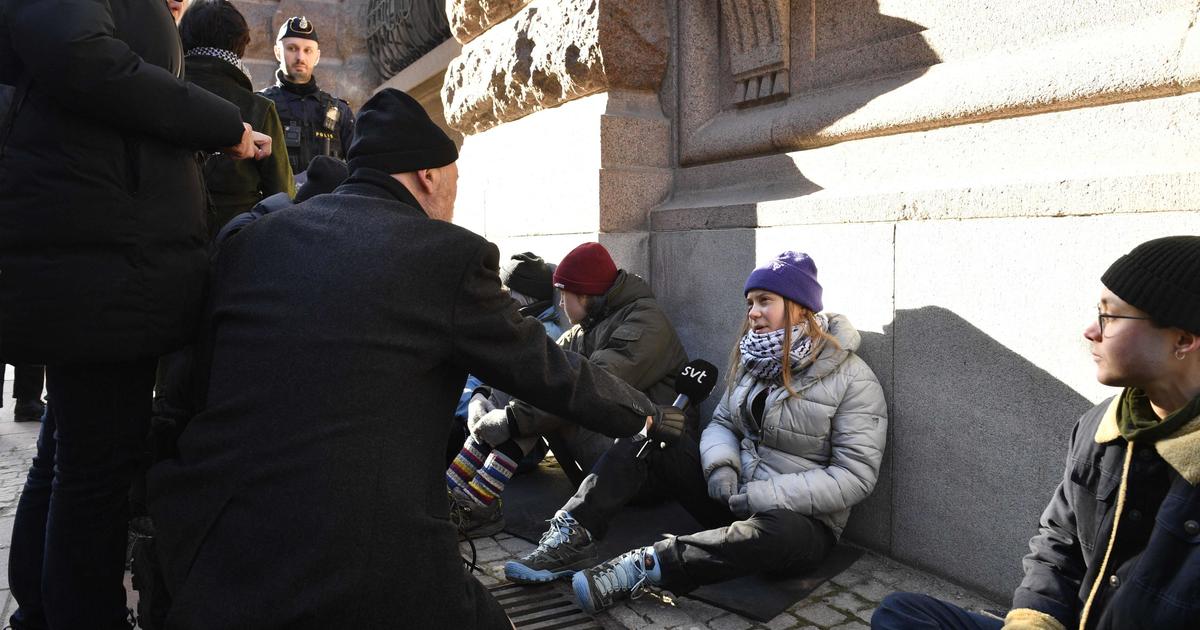Many of our habits harm the climate.
We know that - and still hold on to them.
Because we as individuals feel too small.
Even small steps can be very motivating.
Frankfurt – One of the most well-known Internet memes shows a dog sitting in a burning house and saying, "This is fine".
Although nothing is obviously "okay", shortly afterwards he is seen bursting into flames.
Nevertheless, he does not come up with the idea of freeing himself from the trap, but drinks his coffee in peace - in the deep belief that somehow everything will be fine in the end.
Is it?
Talk show host Markus Lanz recently called on the activist Carla Rochel from the "Last Generation" not to lose heart in the face of the climate catastrophe, but to believe in people's ability to adapt: "You are young, you should be optimistic!"
The reality, however, makes optimism difficult.
The global warming of a maximum of 1.5 degrees targeted in the Paris climate agreement can hardly be achieved, we are currently struggling for 2 degrees.
Global warming brings with it droughts, floods, rising sea levels and deadly heat waves.
And not in the distant future, but within the next few decades.
But so far, even acknowledging the climate crisis we are facing has not automatically led to action for most people.
Instead, there is a gap between their values and their actions called cognitive dissonance.
To put it simply: We know that our consumption or flying, skiing and driving are harmful to the climate.
But we don't change our behavior.
Suppressing the climate crisis: Why are we even doing this?
Why is that?
"We can hide the climate crisis," says Prof. Dr.
Myriam Bechtoldt, psychologist at the EBS University of Economics and Law and member of Psychologists for Future, in an interview with the
Frankfurter Rundschau
by
IPPEN.MEDIA
.
The worst climate damage lies in the distant future.
The current changes in the climate are real, but so far they are small or not noticeable everywhere.
The flood disaster in the Ahr valley with many deaths was bad, but is seen as a singular event and is still far away for many people.
That makes it incredibly difficult to internalize that a catastrophe is happening, says Bechtoldt.
“We can only experience the present, physically, emotionally, spiritually.
The past and the future are abstract concepts that we can cognitively understand but not feel.
As a result, they have a different urgency and also a different truth for us.
What I am feeling right now is true.”
We all have to do something - but still think we can't do anything
At the same time, however, we know that we are facing an overwhelming problem.
And we know we all have to do something.
This applies to ourselves, and to politicians and business leaders.
"The crux is that we have a collective problem," says social psychologist Dr.
Karen Hamann from the University of Leipzig of the
Frankfurter Rundschau
of
IPPEN.MEDIA
.
"Many people have to act, entire social structures have to change in order to achieve a real socio-ecological transformation.
This creates the feeling that we as individuals can do nothing.
And when that feeling gets too strong, it makes us not want to deal with the problem at all.”
The result: the media report too little, and many newspaper readers avoid articles on the climate catastrophe.
Others jokingly downplay a sustainable lifestyle, vegetarian and vegan diets or climate protests.
This evasion is normal behavior that even helps in private crises, for example to deal with grief.
"But in the case of collective crises such as man-made climate change, these strategies are fatal," says Hamann, who is also involved in the association Wandelwerk Environmental Psychology.
They tend to bury one's head in the sand.
Climate crisis: We live in an unsustainable society
Those who consciously change their lives often find themselves alone.
"We live in a society in which most others do not behave in a sustainable manner," says Hamann.
"The structures are also still designed for the usual, less environmentally friendly behavior." We all know it: In most cities it is more convenient to drive to work by car than by bike or subway.
Our convenience is important to us.
And if you have a little money, you consume far more than you need to.
What do people find worse, personal sacrifice or the consequences of the climate crisis?
According to Bechtoldt, many people see the bigger problem in possibly having to give up their hard-earned standard of living.
Climate crisis: Like-minded groups help against the fear
What doesn't touch us doesn't drive us to act.
Unfortunately, fear and a sense of crisis are the better catalysts.
It is therefore no wonder that young people in particular, like the activist Carla Rochel, are committed to the climate.
The majority of people between the ages of 16 and 25 feel the future is scary, according to an international study by the University of Bath in 2021. Two thirds of those surveyed stated that they felt sad and anxious as a result.
What to do?
"It helps to concentrate on the here and now," recommends Myriam Bechtoldt.
“What we can really influence is our present, is today.
On that day I can do what is right, I can behave in accordance with values.
And when I do that, I already feel better - because I feel like I'm doing what I believe in.
Karen Hamann advises people who want to change something to look for groups with similar perspectives.
It also increases the feeling of self-efficacy to move in an environment in which others also consciously take the train, avoid plastic or shop regionally - without being considered a "fun killer".
Successes in climate commitment are also motivating on a small scale, says Hamann - “especially if they are long-term
bring about structural changes.”
One thing is clear: if we change our consumer behavior, this will help our sense of self and increase the demand for environmentally friendly products.
But politics and business are responsible for the big adjustment screws.
"We need structural changes at a societal level that enable each of us to behave properly," says Bechtoldt.
“We will not get the climate crisis under control by no longer allowing ourselves to go on vacation.
The issue is far too big to be left to the responsibility of each individual.
The biggest climate pollutants are industry and transport.” According to Bechtoldt, what we can do ourselves: Contribute to the necessary pressure from society so that the climate crisis is discussed more in the media and politics.
The dog in the meme might also be doing something - like putting out the fire before it spreads and burns him up.
Then everything would really be "fine".








/cloudfront-eu-central-1.images.arcpublishing.com/prisa/D6S7A46G4BGF3CAL5DF5CX7J4U.jpg)






